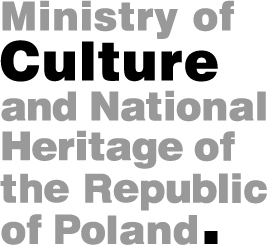|
|
traces of memory Włodzimierz Fiszer (excursion three) "Excursion to East Prussia" A talk on Pol. Radjo-Lvov on 5 VI. 1935 at 19:15 hours page 5 provide the viewer with emotions of aesthetical nature. There exists the conviction that if on entering a country, one does not learn about its attitude to social issues, one has no basis to accrue information and, practically, ends up existing in a void. – Visitors to today's East Prussia can easily avoid such problems as it is enough that one begins sightseeing to see the peculiarities of the country from the said national memorial under Tannenberg. – The ancient Prussians boldly claimed that they were leading European countries in terms of educational as well as military organisation. Now, the pursuit to revive this tradition, first and foremost, the past tradition of German military excellence, constitutes the synthesis of today's Prussian tendencies. After Hitler's March proclamation which pushed Germany into a leading position among the countries developing their armed forces, the renaissance of Prussian militarism in its previous form can be seen to be the source of an increasingly stirring political sensation. Nevertheless, it also accentuates the significant fact that the need for increased armaments has a phenomenon subordinate to it, as well as many others, the rule of cycles, appearing on the historic scene every dozen or so years, like the 29th day of February. – Practically speaking, this is only an act of neighbourly urbanity towards other countries on the part of Germany, as was recently declared to me by a Prussian lawyer in a friendly conversation. Even if Germany did not propose the project of new armaments, someone else would. However, Germany does not want a war, hence comes the trouble with armaments. After all, one can kill a man using an old musket but making a man feel awe using such an old-fashioned contraption is impossible. To do so, one needs our excellent machine guns and aeroplanes. page 6 –This peculiar confession of political faith from today's Prussian man is by no means a play of words, lacking any actuality, even with regard to such a broad assessment of current international relations, which are not free from moves bearing the features of threatening others. - However, one has to admit this particular form of politics is nothing new. The Chinese invented it years ago, when they fought their first battles against European armies. They carried paper dragons on high sticks to frighten their enemies with them. At that time, it proved impractical because the method of the intimidation of the enemy had yet not infiltrated Europe. However, today, the old Chinese stratagem, proving the great wisdom of that nation could certainly be reintroduced, although with some modifications. –If States are supposed to intimidate each other, would it not be better to procure some terrifying contrivance? –If the task of their production were delegated to the most outstanding European cubists, futurists and independent painters then, even paying several dozen per piece - not in marks or franks but pounds sterling even, one would economise enormous sums compared to what armies cost. – However, I doubt whether these reasonable words can convince European governments. Probably not, because there is nothing more arduous than fighting against well-rooted addictions. -And, the build up of armaments of a country seems to be an addiction today. Perhaps, in several years from now, European armies will be much stronger in numbers than today but it is now impossible to see how much better their equipment will be, considering the advances in war technology. – All of the achievements of knowledge which the human mind can be proud of serve armies today. –There is no single individual in the world who would not page 7 contribute to the betterment of their army, whether personally and actively, or financially, or morally. – And, is this entire super-human mental and financial effort made to prevent these increasingly more dangerous armies from... fighting? Apparently, it sounds paradoxical but it is the most obvious truth. – And, maybe, because of the paradox of this truth, our current peace, approved of with so much relief by the whole civilised world, does not always fulfil its humanitarian mission of soothing the sorrows and pains of mankind. Maybe, for the same reason, the "angel of peace" cannot enjoy a certain and level path before itself, the road still being shaped like a question mark: When will this change? – Today's reality provides no answer to this question. –(Thus) It will probably happen when armed peace will become much more expensive than war, [such a peace] being much more dangerous to the economic development of European societies than any of the most fierce and cruel feats of war. Włodzimierz Fiszer". (Sic!) The archive of Włodzimierz Fiszer was accessible thanks to the courtesy of Mr Piotr Fiszer. Translated by Marzena Beata Guzowska
|

|
|||
| |||||
